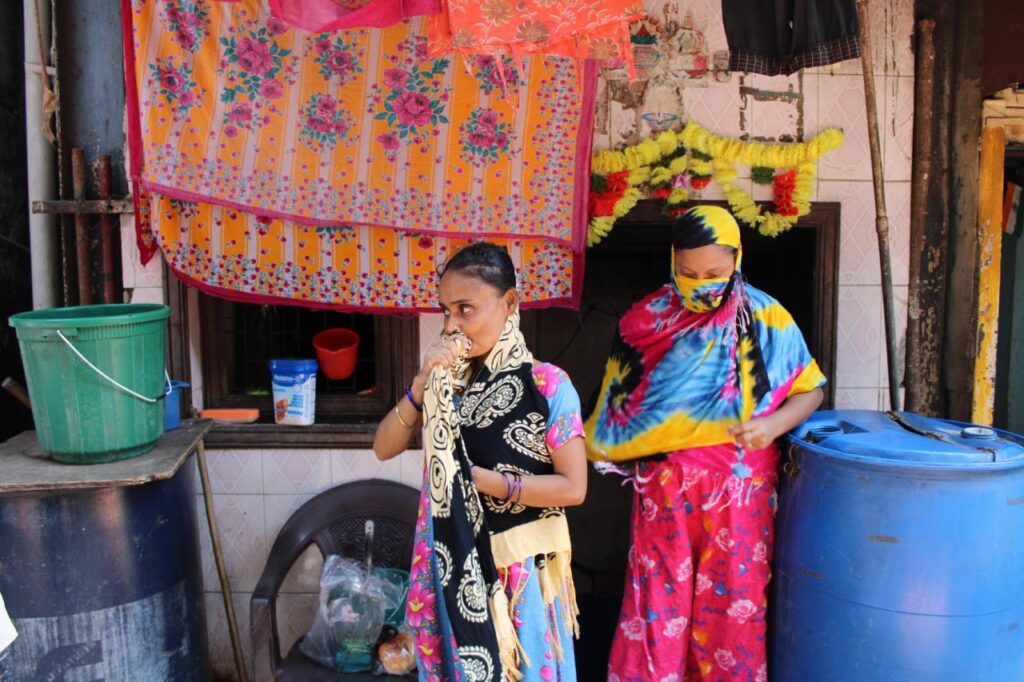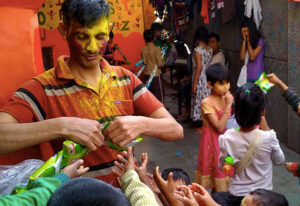International Sex Workers Day: Invisible, unheard and uncounted

Sex workers in India are amongst the most exploited and vulnerable communities (MIG Photos/Varsha Singh)
“Akka, humari life toh kharaab ho gayi but humare bachchon ki life kharaab nahi honi chahiye, iss dhandhe mei mera bachcha nahi aana chahiye. Kuchh karo! (My life is ruined, but my child should not suffer the same fate, she should not be forced to into this cruel world. Please do something!),” a sex worker in Mumbai pleads for help to Lalitha SA Nayak, vice president of Society for Participatory Integrated Development (SPID), who has been working closely with sex workers for 30 years. Like this particular woman, many others forced into flesh trade have lost all hope of ever getting out of it, but want their children to lead a life of dignity.
In a society, where consensual, pre-marital relationships are frowned upon, sex work further fumes the moral code. Yet, sex workers cater to the needs of millions of men every day and are more often than not left behind exploited, harassed and tortured in the process.
The law clearly states that every worker in the country possesses some basic rights, like opting for a profession or an employer, joining or leaving place of work at free will. On the face of it, like any other worker, sex workers, too, enjoy these rights. However, the stigma and the perception of immorality attached to them makes them vulnerable to exploitation at every step. In most cases, not only are they forcefully pushed into trade at a very young age, they also become victims of human trafficking, sexual exploitation and brutality, even at the hands of law enforcers.
“In India most women pushed into sex work is a result of trafficking. Even if one says they are there by choice, initially it is always result of being forced by someone. It is only later when they lose all hope of rescue, that they come to terms with their life. They face a lot of violence from everyone, customers, pimps and even the police. Many times they do not even receive their earnings timely,” Lalitha Nayak tells Media India Group.
Unjust justice system
While in India sex work is not illegal, but many other activities and people involved in the system have been criminalised leaving a sex worker completely alone, making her vulnerable to harassment and exploitation.
“For a sex worker to work safely, there are other people and things in play which are illegal. She cannot call somebody (customer) to her, nobody can assist her with it, and she is completely alone in the process. Now this means that if a sex worker is at one of places from where she does her work, she is all alone and therefore vulnerable and can be harassed. If this is a transgender person they become even more vulnerable in such situations,” Sneha Mukherjee, a Delhi based advocate tells Media India Group.
Protectors prey on vulnerability
While women who are forced into the sex trade already live as second class citizens, they are seen as criminals rather than victims by the law enforcement agencies and are often subjected to unjust treatment and brutality.
“There have been so many cases where the police has picked up a sex worker randomly from their place of work, taken them to the police station and forced them to strip and then physically assaulted them,” says Mukherjee.

Kamathipura, one of the oldest and best known red light districts of India, serves as home to nearly 4,500 sex workers (MIG Photos/Varsha Singh)
Uncertain of how they would be treated by the police, these workers avoid seeking their help even when they are victims of violent crimes. “The kind of harassment that they go through is horrible. The moment they go to the police, in most cases police asks them to give them free sex just to lodge their complaint. Not only the police but in some cases even doctors who are at the ART clinics ask for free sex. If you are constantly told by the police or anyone that the work that you do is illegal, and any harm caused to you a result of your own doing, of course, it would make you apprehensive and scared,” says Mukherjee.
“Then there is literal harassment, like having the police come to the red light area where they work and constantly harass them, passing comments, molesting them, even when we as lawyers tell them to file a complaint they say that the police will ask them to have sex for free and if they refuse, they get beaten up,” adds Mukherjee.
Invisible victims of sex trade
While the Indian legal system still recognises female sex workers as the exploited lot, male and third gender sex workers are given no such recognition. Over the years, the government has passed various schemes to help sex workers but all them have been aimed at only at women. According to Mukherjee the fact that sex work is something done by persons of other genders as well has been completely ignored by the legislators and the society in general.
“Even though people are sympathetic towards female sex workers, but MSM, male sex workers and transgenders face brutality. I remember when we were working with this community in Malle village in Nasik, Maharashtra, a mob came and assaulted them, destroyed their houses and even killed some of them. Prostitutes still get some acceptance, people still let them live in the society but transgenders and MSM are treated very harshly by the society even today,” Girish Kulkarni, founder Snehalaya, tells Media India Group.
Dangers to their children
Even though the sex workers lose all hopes of returning back to their families and old life, they fight for their children, to them out of the filth they were forced to accept.
Many NGOs and other organisations like Society for Participatory Integrated Development, have been working to educate and rehabilitate the children of sex workers and prevent second generation sexual abuse and exploitation.

Workshop for children of sex workers at SPID centre, GB Road, Delhi (Photo Credits/SPID)
“Many sex workers are worried about their children, they often say that their life would end in a brothel but they definitely don’t want their children to get trapped in this profession and want them out of this place. This is why I have always focussed on educating these children, providing them with all the help required to get out of that environment. I hope that that once they stand on their feet, they might be able to help their mothers as well,” says Nayak.
Nayak says over the past 30 years, her organisation has been able to educate over 2,000 children of sex workers and rehabilitate hundreds of women.
Even though various NGOs have been working tirelessly to uplift sex workers and help them secure a dignified position in the society, the situation will not be better until society de-stigmatises their profession.
“The outlook of the society is the main problem, as long as we think that there is fundamentally wrong with sex work, something is wrong with just the sex worker and not the people going to them, we will never be able to see any change,” says Mukherjee.
Removal of stigma and ensuring a better legal framework is the first step India needs to take in order to ensure a better life for sex workers with better wages, health security and protection, like any other worker or citizen.









